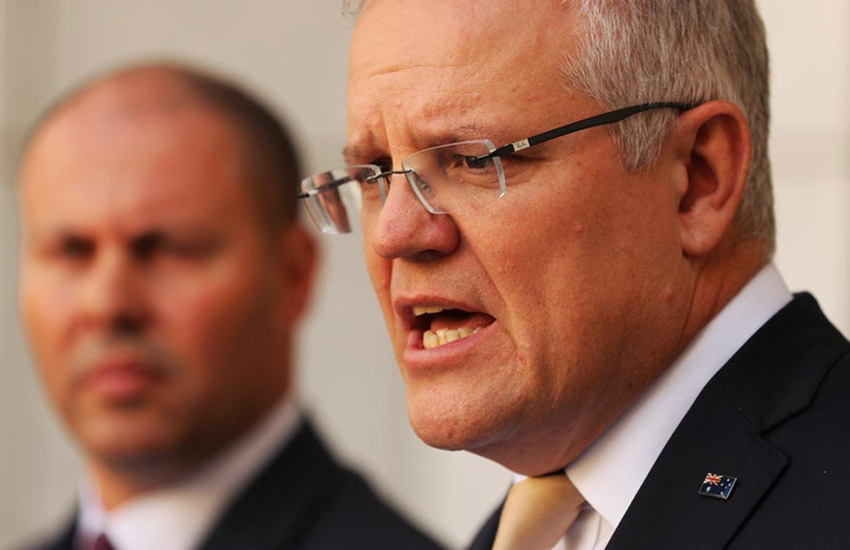“At the end of 14 days [of a lockdown], we would be providing to all states and territories the same arrangements that we are entering into now with the New South Wales government for business,” Mr Morrison said at a press conference at Kirribilli House in mid-July.
You’re out of free articles for this month
“Now for all other states and territories, the Commonwealth, in those circumstances, will administer those payments for business.”
Instead, with Victoria’s current lockdown scheduled to run into its fourth week, federal Treasurer Josh Frydenberg and Victorian Premier Daniel Andrews have turned to an extension of Business Costs Assistance Program that will see Melbourne businesses receive an additional $5,600.
NSW businesses, on the other hand, can expect up to $100,000 in JobSaver payments each week, based on 40 per cent of their weekly payroll. Large hospitality and tourism businesses can also now expect up to $500,000 each week.
The Institute of Public Accountants general manager of technical policy, Tony Greco, said leaving it up to the states to roll out support during extended lockdowns will result in unfair outcomes for businesses.
“The patchwork of relief from states all doing their own thing in response to a national emergency is making it worse than last year when we had a Commonwealth approach,” said Mr Greco.
“JobSaver was supposed to be the national response to extended lockdowns going beyond two weeks for business support.
“The patchwork approach to business support will result in businesses receiving different outcomes for the same set of circumstances which is what the PM was trying to avoid when he made [his] announcement.”
The Victorian Chamber of Commerce and Industry (VCCI) has called for a national approach, arguing that Victorian businesses shouldn’t be worse off than their NSW counterparts.
“A nationally consistent approach to providing all businesses with the support they need to make it through COVID-19 restrictions is overdue,” said Dylan Broomfield, VCCI general manager of policy and advocacy.
“It’s up to governments to harmonise support across states and to make it simple and quick for business to receive support.
“The current model used in Victoria has proven quick and easy for most Victorian businesses, and we would encourage the state and federal governments to increase the amounts to ensure there is parity with NSW.”
Is JobSaver the answer?
CPA Australia’s business and investment policy senior manager, Gavan Ord, who has been critical of the country’s “hodgepodge approach” to support programs, believes that while a national response is warranted, the introduction of a Victorian JobSaver program may not be a straightforward exercise.
He believes there will be challenges in implementing the program, and notes that there will be winners and losers, with larger Victorian businesses set to benefit while smaller employers with weekly payrolls of less than $7,000 will receive less under JobSaver than current supports.
“The easiest part of introducing a Victorian JobSaver scheme will be the announcement. What comes next is the hard part and the bit we’re concerned about,” said Mr Ord.
“We have concerns about the capability and capacity of the Victorian government to build and administer a JobSaver scheme. It may be necessary to second large numbers of ATO and federal Treasury employees to develop the systems, guidelines and support underlying the scheme.
“As with the NSW JobSaver scheme, it will be accountants and bookkeepers who carry the burden of making the scheme work in reality. Unless serious thought is given to reducing their workloads by taking stress out of the system elsewhere, they may not have the capacity to help clients with JobSaver applications.”
Extended lockdowns and JobSaver apart, other states and territories that have experienced shorter shutdowns have been left to design and implement support measures that come with their own set of guidelines and rules.
For the IPA’s Tony Greco, the alternative to a Commonwealth response will be a continuation of the state-by-state approach — an unpalatable outcome for accountants with clients across the country.
“This is madness having to navigate all the different eligibility criteria and keep abreast of all the changes. ACT, SA, Qld and Darwin have all recently published similar business support packages,” said Mr Greco.
“Accountants are battling their own demons in states such as Victoria and NSW in particular, as they themselves are not immune to feeling down servicing desperate clients, as well as trying to maintain the viability of their own business.”

 Login
Login







